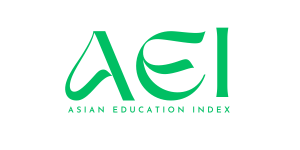The Roles of some selected Institutions in democratic Consolidation in Nigeria, 1999-2021
Keywords:
Nigeria, education, development, democraticAbstract
Democracy as the most dominant political movement in the world today has been a worldwide trend over the years. In this regard, there has been an upsurge of international development agencies as important actors for democracy promotion, especially in developing countries, complimenting the efforts of other domestic democratic institutions such as INEC, political parties, Legislatures etc. Even though Nigeria has experienced over twenty years of uninterrupted democratic practice, there are still various challenges confronting Nigeria’s democracy which has restrained it from consolidation. With secondary data, the paper examines the roles of some selected democratic institutions in consolidating democracy in Nigeria between, 1999-2021. It identified the problems that have militated against Nigeria’s democratic sustainability in the past to include lack of proper democratic institutions. The paper concludes that for democracy to achieve its goals there is the need for change in the value orientation of the political elite. The argument is that no matter how sincere and determined a country or an international organization may be in its efforts to institute democratic rule in another country, its impact and influence "are largely conditional on opportunities presented by domestic developments," and, in most cases its efforts can only partially affect the outcomes of transitions." Where domestic conditions do not conduce to democracy, the efforts of an external actor could completely fail to make any impact. The paper therefore recommends that for democracy and democratic consolidation to thrive in the country, the war on corruption must be pursued with vigour. The ideological bases of our political parties that facilitate political vagrancy must be altered and in all the government must put in place measures to strengthen the nation’s democratic institutions and intensify political education amongst politicians and citizens as precursor to good governance and development in Nigeria.
Downloads
Published
Issue
Section
License

This work is licensed under a Creative Commons Attribution-NonCommercial 4.0 International License.
User Rights
Under the Creative Commons Attribution-NonCommercial 4.0 International (CC-BY-NC), the author (s) and users are free to share (copy, distribute and transmit the contribution).
Rights of Authors
Authors retain the following rights:
1. Copyright and other proprietary rights relating to the article, such as patent rights,
2. the right to use the substance of the article in future works, including lectures and books,
3. the right to reproduce the article for own purposes, provided the copies are not offered for sale,
4. the right to self-archive the article.













